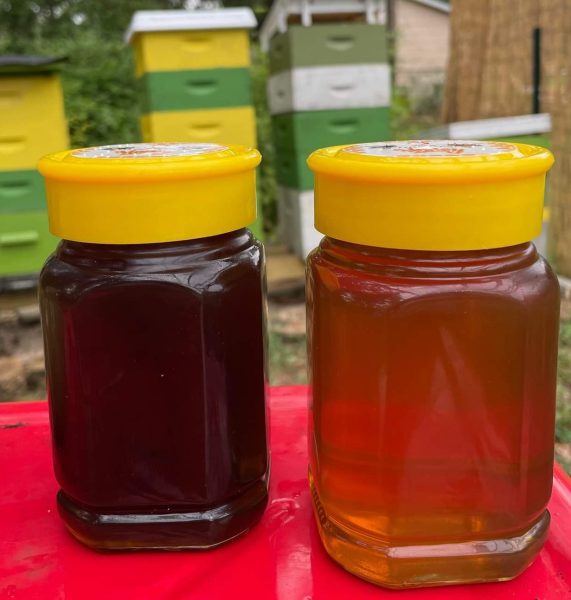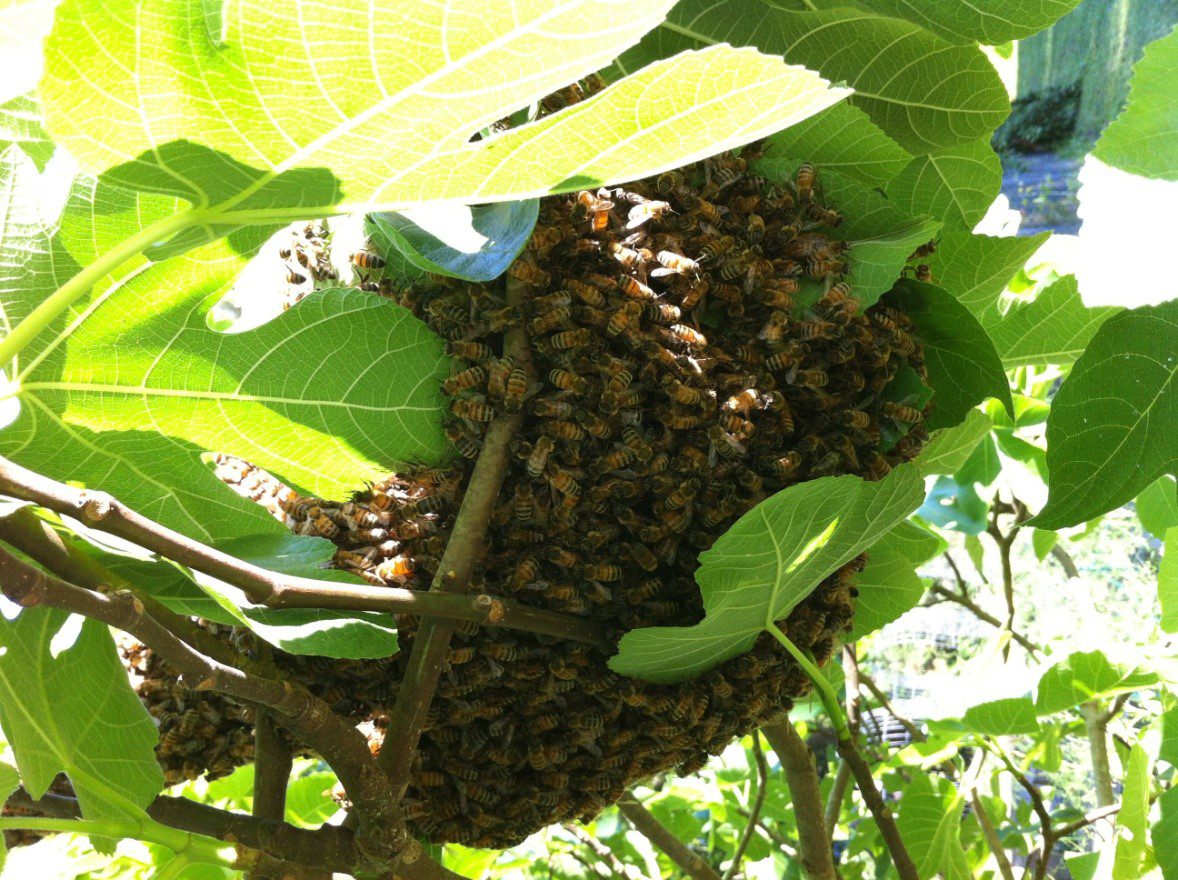Forestry & Wildlife

Honey bees might not the first thing that comes to mind when you think of forestry, wildlife, and natural resources (FWNR), but they are an important aspect of it. FWNR is not only about trees and wildlife. This group includes fisheries, recreation, and, of course, honey bees. Yes, honey bees.

Auburn University Honey in Jars
Honey bees are not exactly a native insect. People of European descent brought them to the United States for several reasons, the foremost being, of course, agriculture. Honey bees are tuned in to agricultural pollination needs. Unlike wild pollinators, honey bees are faithful to a flower source. This means that when they are pollinating a peach orchard, they mine out that flower resource. The orchardist can depend on honey bees to ensure that the trees bear a good crop, and the same goes for many Alabama fruit and vegetable crops. Watermelon, cantaloupe, and beans are among many produced and enjoyed here in Alabama.
Also, of importance was, and is, the sweetness honey brings. Honey was one of the best sweeteners available in the past. Cave paintings in Spain show humans robbing honey bee hives as far back as 8000 B.C. Also, people would immerse food in honey to act as a preservative. Honey was also a medicine. It has antibacterial properties that humans relied on prior to the age of antibiotics.
Now, honey is where forestry can shine. Honey is heavily influenced by which flowers were used in its creation, and honey made from trees and shrubs is some of the most unique and flavorful varieties. Many native Alabama trees provide nectar for high-quality, high-dollar honey. Tupelo trees are one of the first that comes to mind, followed by Sourwood, Linden, and Gallberry. These trees are not commonly available in agricultural settings or in urban/suburban settings. They’re found in Alabama’s native forests. How forest managers treat their lands, from pine plantations to hardwood stands, influences the flavor and quality of honey produced all around them.
Honey bees are here to stay and the beekeepers in Alabama Extension invite you to learn more about them! Beekeeping fits in well with forestry and wildlife management. Beekeeping is a rewarding pastime, not to mention a lively side business that can be practiced by anyone with a little space and a willingness to learn.
For more information, contact William (Jack) Rowe, regional Extension agent.

